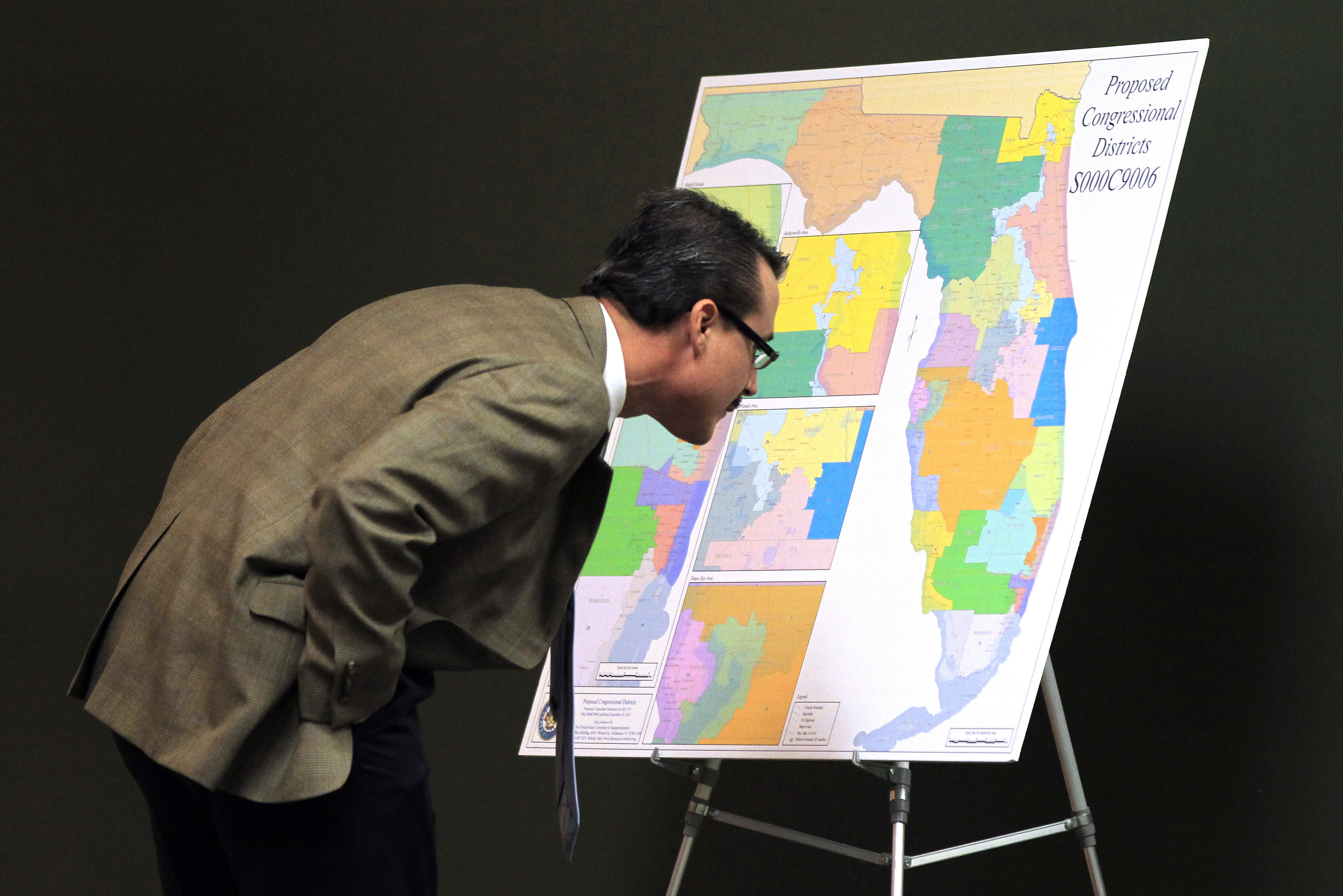By Martin Ascher
Introduction and Problem
New Yorkers have been criticizing the City’s Board of Elections (BOE) for decades. In 2013, after the BOE pulled lever voting machines out of retirement due to a lack of confidence in newly acquired electronic voting machines, then-Mayor Bloomberg called it “an elections bureaucracy rife with patronage, mismanagement, incompetence, and waste.†Further, he stated that the Board of Elections was “notoriously dysfunctional†and had a “dismal track record.†In 2017, the BOE had to enter into a consent decree with the Department of Justice and New York Attorney General’s Office after 120,000 voters were illegally purged from the rolls prior to the 2016 Democratic Presidential primary. Most recently in 2019, voters had to read through Charter Revision Commission proposals in 7.5-size font due to the BOE’s resistance to creating multiple ballots with a smaller number of languages, which would have allowed for a larger font to be used. Elections determine who governs New York City and New York State, and this low quality of performance over the years indicates that the New York City BOE is an agency in dire need of reform.
This memo will advocate for two possible reforms to the New York City Board of Elections discussing what changes would be possible both with and without a State Constitutional amendment. It will also discuss the potential hurdles to these reforms, which I would expect to be both legal and political.
About the City Board of Elections and Problem Continued
The structure of New York City’s BOE is established in New York’s State Constitution. Article II Section 8 of the State Constitution requires that “all laws creating, regulating or affecting boards or officers charged with the duty of qualifying voters, or of distributing ballots to voters, or of receiving, recording or counting votes at elections, shall secure equal representation of the two political parties which, at the general election next preceding that for which such boards or officers are to serve, cast the highest and the next highest number of votesâ€. According to the Constitution, these board members must be nominated by “representatives of said partiesâ€. Today the BOE consists of one Democrat and one Republican from each borough, giving the BOE ten total members. These BOE Commissioners are selected by the Democratic and Republican City Council caucuses respectively and are made in consultation with the county executive committee for each party. This means that Commissioners have a dual role, with obligations to both the public (as government officials) and the local political parties. This makes it hard to govern in the public interest within the existing constitutional structure. Given that all election administration decisions, from choices about ballot design to choosing polling locations, are made by the BOE this dual role has detrimental implications, as demonstrated by the examples described above.
The bipartisan structure is based on the premise that since neither party could be trusted to be unbiased, an evenly divided BOE would ensure that the parties watch over each other and mischief is kept to a minimum. While this approach may have made sense in an era when political parties had traditionally taken the lead in administering elections, it does not make sense today. Many New Yorkers do not affiliate with either of the two major parties, and this structure prevents these voters from being represented on the BOE. Additionally, only 10% of New York City’s voters are registered Republicans but they get the same amount of voting power on the BOE as the almost 68% of the City’s voters who are registered Democrats. Since BOE decisions must be made by majority vote, this gives the Republican Party’s BOE commissioners an effective veto over everyone else in the City if they vote as a block.
Proposal 1: Removing the Partisanship Requirement from the BOE
The Proposal
- Ideally, I propose removing the bipartisanship requirement from New York’s State Constitution. While I would not require that all BOE Commissioners be unaffiliated with a major party, I would amend the State Constitution to allow unaffiliated people to serve as BOE commissioners. In doing this the City’s BOE could be restructured and based on the model of the City’s Campaign Finance Board (CFB) or merged into it. The City’s CFB is a non-partisan city agency made up of five commissioners, two of whom are appointed by the Mayor, two appointed by the Speaker of the City Council, and one chosen by the Mayor in consultation with the Speaker. Each of these appointees have a staggered five-year term and the Mayor and Speaker cannot choose two board members from the same political party. Utilizing this structure would remove the dual loyalty problem described above, as commissioners would have no direct incentive to protect county parties. Given this, the public interest side of the dual role will benefit at the expense of the partisan side, which is likely more interested in preserving the status quo. It would also remove both the disproportionate power over City elections Republicans enjoy under the current system, and the required exclusion of those unaffiliated with the major parties. This seems to be a reasonable model to implement for the City’s BOE. If this new BOE contained a variety of viewpoints, it seems likely that performance would improve, as partisanship would no longer be the key qualification used in selecting BOE staff.
- Operational efficiencies can also be gained by merging the BOE into the CFB. Once partisanship requirements are eliminated, the election administration roles normally performed by the bipartisan BOE could be performed by the CFB instead. Additionally, the odd number of CFB board members should prevent the deadlocks made possible by a BOE split evenly between two parties. Since the City already has an organizational structure in place to handle some aspects of election administration, it makes sense to give that agency more power rather than the BOE which has proven its incompetence repeatedly. Given the potential efficiencies that could be gained, I would recommend eliminating the City’s BOE and placing its former functions under the direction of the CFB over retaining the BOE as a separate agency. There is already a sensible structure in place for election administration in New York City, so we should use it.
- While this proposal would still retain some role for politics, the CFB’s nonpartisan structure seems to be working better than the BOE’s bipartisan structure. This change could be accomplished with the passage of State legislation, once the the New York State Constitution is amended.
The Constraints
- While removing the bipartisanship requirement from election administration agencies could substantially improve the City BOE’s performance, a constitutional amendment will need to be passed. In New York, a constitutional amendment must be passed by both houses of the State Legislature in two consecutive sessions before it is submitted to the voters for approval. This means that the earliest this change could be implemented would be 2021 or 2022, so it would not be in place for the next Mayoral and Presidential elections.
- There could be significant political opposition to this constitutional amendment. First, given the dominance of Democrats in New York City politically, it seems likely that Republicans in the State Legislature will oppose this amendment. The current bipartisan requirement ensures that Republicans hold half of the seats on the City’s BOE regardless of how many or how few elections they win. Republican appointed commissioners can then use this power to vote as a block and prevent any changes proposed by the BOE’s Democratic members. These same Republicans can then rally their voters to reject the amendment if it made it to a statewide vote. Additionally, enough Democrats may oppose this Amendment to prevent it from passing through both houses of the State legislature to begin with. While many reform-oriented candidates have been elected to Albany in recent years, there are still many members of the State Assembly and Senate who are closely affiliated with the county executive committees who currently choose the City’s BOE commissioners. Another group that could have an interest in blocking this amendment from passing the legislature include rural Democrats who benefit from the bipartisan structure in upstate counties, where there are more Republicans than Democrats. Additionally, if Republicans can message this change as a “Democratic power grabâ€, they could get some Democrats from suburban swing districts to oppose the amendment. Depending on the numbers, it is possible that a coalition of Republican, machine-affiliated, rural, and suburban Democrats could block this change to the State’s bipartisanship requirement from ever passing the State legislature.
Proposal 2: Working within Constitutional Limits
The Proposal
- Given the political difficulties of passing an amendment to New York’s Constitution it is worth examining what could be done either instead, or while awaiting passage, of the amendment. This “damage-mitigation†approach would use legislation to strip as much power away from the City’s BOE commissioners as is legally possible and give this power to the board’s Executive Director and staff or to the CFB. Since these staff members and CFB board members are not directly chosen by the party executive committees, they should at least in theory be less prone to the political pressures felt by the BOE commissioners themselves. Under this approach, the BOE would remain in place nominally, and with five members from each of the two major parties, though with significantly less power and less control over election administration.
- Together, giving these powers to a less politicized staff could have significant impacts on the elections process in New York City and would have helped the BOE better deal with the lever machine issue in 2013, voter purge issue of 2016 and ballot font size issue in 2019 discussed above.
- If the professional staff of the City’s BOE is to be given an expansive set of new powers, then it also makes sense to ensure that this staff is qualified. The Department of Citywide Administrative Services (DCAS) can work with the City’s BOE to establish hiring criteria, that while allowing Democratic or Republican partisanship to be necessary requirements, also assess a candidate’s election procedure knowledge or other abilities relevant to the job they will be performing. This could lead to a more uniform hiring process and a more qualified BOE staff. If the staff must remain bipartisan and evenly split, it could at the very least have clear hiring criteria designed to weed out the worst candidates.
- This approach would require the passage of legislation at the New York State level even if a change is only to be made to the City’s BOE and no others, as reforming the City’s BOE would impact county, State, and Federal elections too. This makes it quite likely, if not certain, that the “substantial state interest†test established in Adler v. Deegan will be met, allowing the State to make changes to the City’s BOE without the “home rule message†normally required. Fortunately, there is already a bill in the State Senate to do just this. State Senator Liz Kreuger’s Senate Bill 2726A would take some of the non-essential powers of the City’s BOE commissioners (i.e. the power to hire and fire specific employees) and give them to the BOE’s Executive Director and Deputy Director. Kreuger’s bill also gives the Executive and Deputy Director more direct control over hiring and firing of employees. This bill removes the ability of the BOE Commissioners to make certain decisions while preserving the bipartisan structure of the BOE necessitated by New York’s State Constitution. Kreuger’s bill also advises the BOE commissioners to consult with DCAS in establishing written personnel policies, though in her version they are not mandated to do so. Kreguer’s bill does not contemplate transfer of the unmandated powers listed above to the CFB, but I believe this is an idea worthy of serious consideration. My proposal goes further than Kreuger’s, and given the political difficulty of passing any BOE reforms through the State Legislature (discussed below) I believe that if political capital is to be spent on this, we should seek as expansive of a set of reforms as possible
The Constraints
- Since a State law would be required to enact these changes, there are significant political obstacles which could threaten its passage. Many of these obstacles would be the same obstacles that the constitutional amendment would face. As with the constitutional amendment, it can be expected that Republicans in New York’s State legislature would oppose any change in law that would weaken their party’s power over elections anywhere in the State. County Democratic parties are likely to oppose it as well since their power would be weakened too, so any politicians closely affiliated with the leadership of these county parties might attempt to prevent this law from passing. As with the amendment, Democrats in rural areas might oppose this bill out of fear that if it passed, the Republican Party could attempt to do the same thing in reverse in rural counties across New York State where Democrats are likely overrepresented when there is a bipartisan BOE and if the Republican Party could successfully message this change as a “power grab†by Democrats, swing district representatives in the suburbs might oppose the law too. Even if a State law does not change the City BOE as much as a constitutional Amendment would, the same political forces could line up in opposition.
- Additionally, a State law would need to be signed by the Governor to pass if there is not a supermajority of the legislature in support. For the reasons described above, a supermajority of legislative support seems unlikely even if the bill passes both houses of the State legislature. This means that the support of Governor Andrew Cuomo will be required if the change is to be implemented before 2023. Cuomo, a Democrat, has been reluctant to appear too partisan during his governorship and seems unlikely to support laws that could be painted as “Democratic power grabsâ€. Regardless of the merits of this legislation, it is unclear if Cuomo would sign this bill barring a true catastrophe in election administration.
Conclusion
By reforming the City’s BOE we can improve our elections. It is essential that the public trust that elections are being administered competently. Given the City’s recent experience under the current BOE structure, changes need to be made to keep or restore that trust. Removing the bipartisan requirement from the New York State Constitution could serve as the trigger required to restructure the BOE to be more similar to the CFB. While this change would be preferred given the freedom it allows policymakers, constitutional amendments are hard to pass, and take time even in the best case. In order to change the BOE before the 2020 elections a State law must be passed. Both of these approaches will face political opposition, but if the problem can be explained to the public, this reform might have a chance to succeed.
Martin Ascher is a third-year law student at NYU School of Law with a passion for voting rights and democracy reform. He serves as Quorum Editor for NYU Law’s Journal of Legislation and Public Policy, participated in the NAACP LDF Racial Equity Strategies clinic and served as a teaching assistant for “Land Use, Housing, and Community Development in New York City”. Prior to law school, he served as a Community Liaison to New York Senate Majority Leader Andrea Stewart-Cousins. He is also the lead guitarist and vocalist for Stitched in Blue, a rock and roll musician band.




